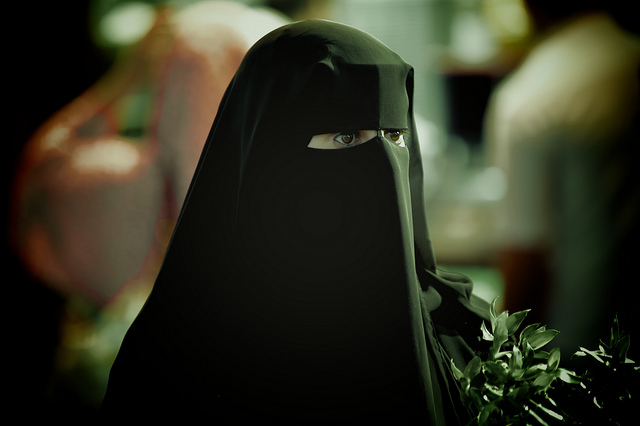In April, France introduced a law which prohibits all persons from covering their face, with the exception of motorcycle helmets, fencing and ski masks, in public. The new law has sparked tremendous backlash from the Muslim community who called it “discriminatory” against Muslim women.
What is often referred to as the “burqa ban,” has recently become the center of controversy after two women were fined for wearing full-face veils, or niqabs, in public. Hind Ahmas, and Najate Naitali, were given the citations (Ahmas received a €120 fine and Naitali an €80 fine) while trying to enter the Meaux town hall with a birthday cake for Mayor Jean-Francois Copé, who pushed Europe’s first anti-burqa law through parliament. The cake, made with almonds, was a gesture of symbolic protest, as the French words for “almond” and “fines” sound similar.
Ahmas called the law a violation of individual freedom, freedom of thought, and of religious expression and practice under European law, and plans to take her case to the European Court of Human Rights. She and Naitali were the first to be fined, but there have been many reports of an increase in verbal and physical abuse against women in veils since the law was introduced five months ago.
In a statement to the public, French president, Nicolas Sarkozy, denounced the donning of veils by Muslim women. The president said that “France is a country where there is no place for the burqa, where there is no place for the subservience of women.” Many French identify the burqa as a means of repression towards women, an ideology that is not welcome in such a secular society. And in a controversial piece in The Christian Science Monitor titled, “France’s Burqa Ban: A brave step that we Muslims should welcome,” Qanta A. Ahmed, asks her Muslim community to embrace the new law as a liberating excuse to walk away from outdated practices that, in her opinion, do not coincide with the true message of the Quran.
Several television and newspaper interviews revealed that many Muslim women who are French citizens feel that they have never been so repressed. In a recent interview with The Guardian, Ahmas, tells the story of how she was was attacked in the street by a man and woman who punched her in front of her three-year-old daughter, called her a whore and told her to go back to Afghanistan “My quality of life has seriously deteriorated since the ban. In my head, I have to prepare for war every time I step outside, prepare to come up against people who want to put a bullet in my head. The politicians claimed they were liberating us; what they’ve done is to exclude us from the social sphere. Before this law, I never asked myself whether I’d be able to make it to a cafe or collect documents from a town hall. One politician in favour of the ban said niqabs were ‘walking prisons’. Well, that’s exactly where we’ve been stuck by this law.”
Weigh In: Is the “Burqa Ban” a way of liberating Muslim women, or is it a violation of individual freedom, freedom of thought, and of religious expression and practice?
READ MORE IN WOMEN
Photo: Glen R. Carter/Flickr




